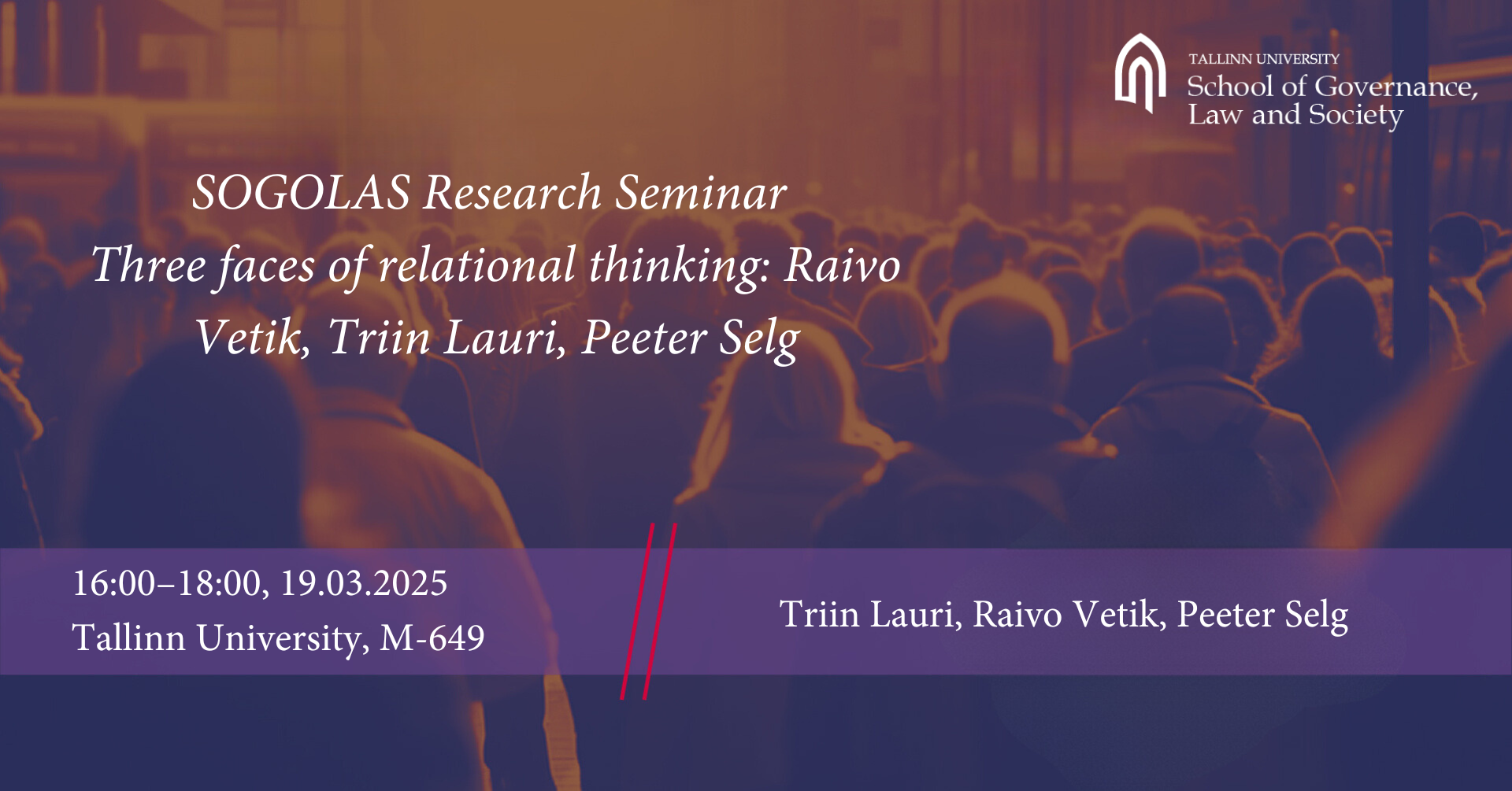SOGOLAS Research Seminar - Three faces of relational thinking: Raivo Vetik, Triin Lauri, Peeter Selg
Add to calendar
iCal calendar
Raivo Vetik:
“Knowledge production in comparative research on political agency often mirrors the power dynamics present in asymmetric national and international fields, raising questions about the validity and status of research findings. I will explore how construct and measurement validity are established across different contexts within models grounded in relational ontology. Additionally, I examine what kind of reflexivity is implemented in accounting for the positionality of the researcher. To address these challenges, I propose a Partial Translation Model as a unifying perspective that not only strengthens comparative methodologies but also creates new opportunities for addressing underlying social inequalities.”
Triin Lauri:
“Even though academic and political communities – at least in Europe – largely agree on the importance of equal opportunities in education, educational stratification is on the rise. This trend is evident even at the level of basic education, including in Estonia. Paradoxically, despite educational expansion and the availability of more educational opportunities than ever before, it still feels insufficient for many. I address various questions emerging from this paradox: How should we conceptualize educational inequality and measure educational stratification when education functions as a positional good – a benefit whose value depends not only on one’s own education but also on that of others and their educational choices? Is social mobility an individual pursuit or a collective phenomenon? What does the relational nature of educational decisions imply? And how does this all connect to Robin Hood and the so-called paradoxes of inequality?”
Peeter Selg:
“I examine the normative implications of adopting a relational approach to governing wicked policy problems, arguing for a shift from seeking success to embracing failure as an inherent aspect of governance. Traditional governance models often aim to solve problems through structured solutions, yet wicked problems—such as drug use, climate change, and pandemics—are 'un-owned processes' arising from complex societal interdependencies. Rather than viewing these challenges as isolated and solvable, I advocate for Failure Governance perspective, an approach that acknowledges the implications of relational epistemology and ontology, including the contingency of social dynamics. This perspective rejects rigid definitions and essentialist explanations, inviting a more adaptive and reflexive form of governance.”
All presentations are based on the authors’ most recently published and ongoing work.
